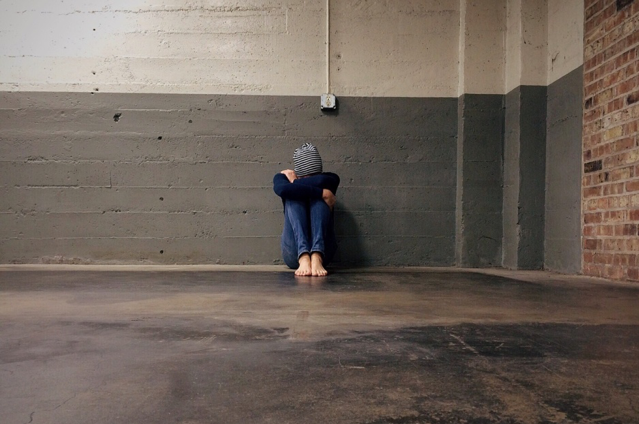Does Misophonia have any relation to other disorders? Experts don’t classify Misophonia as a psychiatric disorder yet. However, the Misophonia condition implies negative thinking and behavior patterns due to certain sound triggers. Overall, it is a life-changing experience for people with this condition. They cannot freely participate in every activity due to the fear of experiencing intense anxiety and aggression upon hearing certain sounds.

(Source)
It is a sound sensitivity that often leaves people with depression and stress. However, some experts think that Misophonia might correlate with other similar disorders. Here’s more on the topic.
Understanding Misophonia
Misophonia is a selective sound sensitivity syndrome. In this condition, an individual can experience sudden outbursts of anger, anxiety, and irritation when hearing sounds such as someone chewing, breathing loudly, sigh, sniffing, etc. Reactions can vary from person to person and may alter their lifestyle to a significant degree that they might stop engaging in social events, interactions, etc.
While some people might feel annoyed or irritated, others can lash out and act aggressively. There is still a need for extensive research to explain the full spectrum of all the complications, scientific analysis, treatments, and diagnosis of Misophonia. Experts are making efforts to increase the awareness of this condition to help patients.
How Does a Doctor Diagnose Misophonia?
It is worth mentioning that there aren’t specific criteria for the diagnosis of Misophonia. In fact, in the DSM -5 (Diagnostic and Statistical Manual of Mental Disorders, Fifth Edition), it isn’t a recognized official diagnosis. This condition is similar to multiple disorders and conditions such as intermittent explosive disorder, phobias, and OCD. Still, not all of the symptoms fully coincide with other disorders.
Despite the lack of proper diagnostic criteria, your doctor can work with you closely to help you through treatments to manage the symptoms and negative responses.
How Does a Person with Misophonia React?
Did you know that there is an endless list of everyday sounds that can be sound triggers for Misophonic people? Here are some of them.
- Wheezing
- Chewing
- Breathing (loudly)
- Sniffing
- Snoring
- Throat-clearing sound
- Nose whistling
- Slurping
- Teeth grinding
Misophonia and Relation to Other Disorders
Doctors often associate this condition with various mental health disorders and issues that reflect some of the main symptoms. For example, a few symptoms of Misophonia are similar to bipolar disorder, OCD, depression, anxiety, stress, obsessive compulsive personality disorder, Asperger’s syndrome, and even autism. Also, a doctor might misdiagnose the condition as ADHD due to the intense distractibility that Misophonia exhibits in certain patients.
The key signs for screening and evaluation include behavioral pattern disturbances and mental health symptoms such as anxiety, manic depression, and more. Misophonia conditions resemble the side effects of various medications and treatments. This makes the diagnosis quite difficult for an expert while making it troublesome to find a solution for the patient.

(Source)
Therefore, the initial approach involves performing laboratory tests that exclude certain conditions and narrow down the list of possible conditions or disorders that include Misophonia. X-rays and different scans might help in assessing brain activity and evaluating the results. Often patients receive self-test questionnaires that disqualify other diagnoses.
Is There a Link to Autism?
Moreover, experts remain confused regarding the link between autism and Misophonia. This is due to the complex sensory stimulation that occurs in autism. Nevertheless, there is still a need for proper studies and research to establish a valid connection between the two.
Potential Causes of Misophonia in Children and Adults
There aren’t any exact causes and knowledge of what causes such strong reactions in people with Misophonia and other similar disorders. However, some factors may lead to Misophonia and other disorders with similar symptoms.
Tinnitus
Misophonia can occur in people with tinnitus. In this condition, affected people hear ringing, buzzing, or any other discomforting sound in their ear(s) without any apparent external sound source.
Mental Conditions
Doctors believe that those with OCD and Tourette syndrome might have a higher chance of manifesting Misophonia symptoms. Moreover, they believe that anxiety disorders play a major role in leading to Misophonia potentially.
Brain Chemistry and Neural Networks
It is valid to assume that some form of exaggerated brain activity can stimulate a more-than-necessary reaction in response to hearing certain triggers sounds. Scientists have this opinion as they notice that misophonic people have higher connectivity between their auditory cortex and anterior insular cortex.
Hereditary/Genetics
If the condition runs in the family, there may be a genetic factor at play leading to Misophonia. Sometimes, it is possible that an older member of the family might have a Misophonia-similar disorder, and a young member may show symptoms of Misophonia.
Misophonia Relation to Other Disorders: Conclusion
Is your Misophonia condition getting worse day by day? Well, it is best to procure the best treatment options as soon as you can. A speedy recovery is possible only when you notice the symptoms early. By discussing your options and experience of Misophonia with the right doctor, you can arrive at solutions that may effectively regulate your negative responses against trigger sounds.
Get in touch with Misophonia Cognitive Center™ to benefit from the expertise of Stephen Katz LCSW-R. Call us at 646-585-2251 today and schedule an easy online appointment.
Reference Links:
https://www.verywellmind.com/misophonia-hatred-of-sound-1191958
https://www.webmd.com/mental-health/what-is-misophonia
https://link.springer.com/article/10.1007/s10879-019-094383
https://www.sciencedirect.com/science/article/abs/pii/S2211364918300034
